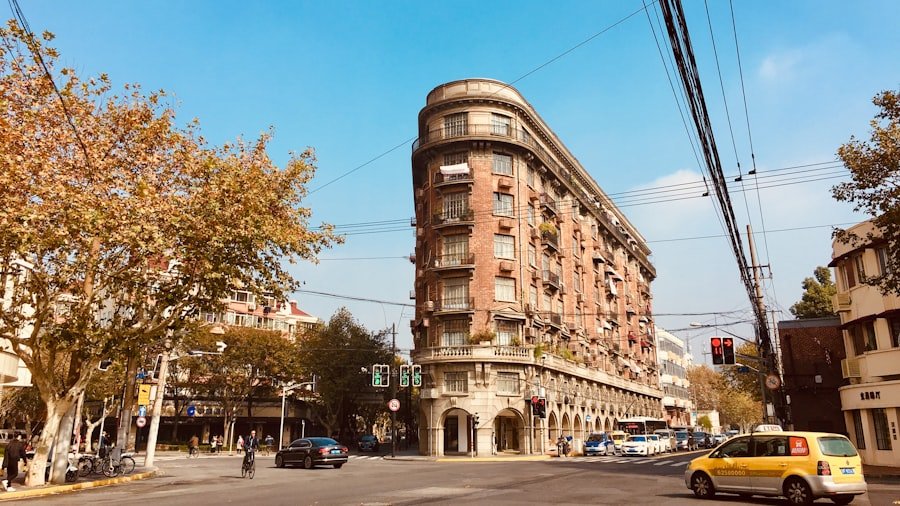Mandarin Chinese, with its rich tapestry of expressions and grammatical structures, offers learners a unique insight into the language’s functionality and beauty. One such expression that stands out is the construction V + 住 (zhù). This phrase is particularly significant as it encapsulates the idea of an action resulting in a state of being or condition.
The character 住 (zhù) itself translates to “to live” or “to stay,” but when used as a result complement, it takes on a more nuanced meaning, indicating that an action has been successfully completed and has led to a specific outcome. Understanding the V + 住 (zhù) structure is essential for anyone looking to achieve fluency in Mandarin. It not only enhances conversational skills but also deepens comprehension of the language’s grammatical intricacies.
As learners delve into this expression, they will discover how it can be employed in various contexts, making their communication more effective and nuanced. This article aims to explore the meaning, usage, and common pitfalls associated with V + 住 (zhù), providing a comprehensive guide for learners at all levels. The LC Chinese School in Oslo now offers comprehensive Chinese courses for all levels, from beginner to advanced.
Table of Contents
ToggleSummary
- 住 (zhù) is a Mandarin Chinese expression used as a result complement to indicate the result of an action.
- It is used after a verb to express the outcome or result of the action.
- Everyday conversations often include examples of V + 住 (zhù) to convey the result of an action.
- Common verbs used with 住 (zhù) include 看 (kàn) – to watch, 听 (tīng) – to listen, and 学 (xué) – to learn.
- Understanding the nuances of 住 (zhù) in different contexts is important for using it correctly in Mandarin Chinese.
Understanding the Meaning of 住 (zhù) as a Result Complement
In Mandarin, the character 住 (zhù) serves as a result complement that indicates the successful completion of an action. When paired with a verb, it signifies that the action has not only been performed but has also led to a specific result or state. This construction is particularly useful in conveying information succinctly and effectively, allowing speakers to express complex ideas with relative ease.
For instance, when one says “放住” (fàng zhù), which translates to “put down and stay,” it implies that something has been placed in a certain position and remains there. This illustrates how 住 (zhù) functions as a marker of permanence or stability following an action. By understanding this aspect of 住 (zhù), learners can begin to appreciate its versatility and importance in everyday communication.
Using 住 (zhù) to Express the Result of an Action

The primary function of 住 (zhù) as a result complement is to articulate the outcome of an action clearly. This is particularly evident in sentences where the verb indicates a physical action followed by 住 (zhù), which denotes that the action has led to a lasting effect. For example, if someone says “我把书放住了” (wǒ bǎ shū fàng zhù le), it translates to “I have put the book down and it is now in place.” Here, the use of 住 (zhù) emphasises that the book remains where it was placed, highlighting the result of the action.
Moreover, this construction can also be applied in more abstract contexts. For instance, one might say “他学会住了” (tā xué huì zhù le), meaning “He has learned and is now able to live.” In this case, 住 (zhù) signifies not just a physical state but also an acquired ability or condition resulting from learning. This flexibility makes V + 住 (zhù) an invaluable tool for expressing various outcomes in Mandarin.
Examples of V + 住 (zhù) in Everyday Conversations
In everyday conversations, the V + 住 (zhù) structure can be found in numerous scenarios, making it a practical expression for learners to master. For instance, when discussing household chores, one might say “我把衣服洗住了” (wǒ bǎ yīfú xǐ zhù le), which means “I have washed the clothes and they are now clean.” This sentence not only conveys the action of washing but also confirms that the clothes are in a clean state as a result. Another common example could be found in social interactions.
If someone were to say “我把门关住了” (wǒ bǎ mén guān zhù le), it translates to “I have closed the door and it is now shut.” Here, the use of 住 (zhù) reinforces that the door remains closed, providing clarity and emphasis on the result of the action taken. Such examples illustrate how V + 住 (zhù) can enhance communication by succinctly expressing outcomes in various contexts.
Common Verbs Used with 住 (zhù) as a Result Complement
To effectively utilise the V + 住 (zhù) structure, it is essential to be familiar with common verbs that pair well with this result complement. Some frequently used verbs include 放 (fàng – to put), 关 (guān – to close), 学 (xué – to learn), and 买 (mǎi – to buy). Each of these verbs can create meaningful sentences when combined with 住 (zhù), allowing speakers to convey specific results.
For example, using 买 (mǎi), one might say “我买住了这个房子” (wǒ mǎi zhù le zhège fángzi), meaning “I have bought this house and now own it.” In this case, 住 (zhù) indicates that the action of buying has resulted in ownership. Similarly, with 学 (xué), one could say “她学会住了游泳” (tā xué huì zhù yóuyǒng), translating to “She has learned how to swim.” Here, 住 (zhù) signifies that she has successfully acquired this skill.
Different Ways to Use 住 (zhù) in Mandarin Chinese Sentences

The versatility of 住 (zhù) allows for various constructions within Mandarin sentences. While its primary function is as a result complement, it can also be used in different contexts to convey subtle nuances. For instance, when combined with adjectives or other complements, it can enhance descriptions or clarify states resulting from actions.
One way to use 住 (zhù) is by pairing it with adjectives to describe a condition following an action. For example, one might say “他吃得饱住了” (tā chī de bǎo zhù le), which means “He has eaten enough and is now full.” In this sentence, 住 (zhù) reinforces the state of fullness resulting from eating. Additionally, learners can experiment with different sentence structures by placing 住 (zhù) at various points within their sentences to see how it affects meaning and emphasis.
Tips for Using 住 (zhù) Correctly in Mandarin Chinese
To master the use of 住 (zhù) as a result complement, learners should keep several tips in mind. Firstly, it is crucial to ensure that the verb used before 住 (zhù) conveys an action that can lead to a tangible result. Not all verbs are suitable for this construction; therefore, familiarising oneself with common verbs that pair well with 住 (zhù) is essential.
Secondly, practice is key. Engaging in conversations where V + 住 (zhù) can be applied will help reinforce understanding and usage. Additionally, listening to native speakers and observing how they incorporate this expression into their speech can provide valuable insights into its practical application.
Lastly, learners should not hesitate to experiment with different sentence structures and contexts to gain confidence in using 住 (zhù).
Understanding the Nuances of 住 (zhù) in Different Contexts
The character 住 (zhù) carries different connotations depending on the context in which it is used. While its primary function is as a result complement, its meaning can shift based on accompanying verbs or surrounding phrases. For instance, when used in conjunction with verbs related to learning or acquiring skills, 住 (zhù) often implies mastery or proficiency.
Conversely, when paired with verbs indicating physical actions, such as placing or closing something, 住 (zhù) tends to emphasise stability or permanence. Understanding these nuances allows learners to communicate more effectively and accurately convey their intended meanings. By paying attention to context and experimenting with different scenarios, learners can develop a deeper appreciation for the richness of Mandarin Chinese.
Using 住 (zhù) in Written Mandarin Chinese
In written Mandarin Chinese, the use of 住 (zhù) follows similar principles as in spoken language but may require additional attention to detail regarding grammar and structure. Writers should ensure that their sentences are clear and concise while effectively conveying the intended results of actions. The V + 住 (zhù) structure can enhance written communication by providing clarity and precision.
Moreover, incorporating this expression into written narratives or essays can add depth and sophistication to one’s writing style. For instance, when describing events or actions within a story, using V + 住 (zhù) can help illustrate characters’ experiences more vividly. Writers should practice integrating this structure into their compositions to improve their overall fluency and expressiveness in written Mandarin.
Common Mistakes to Avoid When Using 住 (zhù) as a Result Complement
As with any aspect of language learning, there are common pitfalls that learners should be aware of when using 住 (zhù). One frequent mistake is using verbs that do not logically lead to a result when paired with 住 (zhù). It is essential to ensure that the chosen verb conveys an action that can produce a tangible outcome; otherwise, the sentence may sound awkward or incorrect.
Another common error involves misplacing 住 (zhù) within a sentence. Learners should remember that its position typically follows the verb and should not be separated from it by other elements unless necessary for clarity. Additionally, overusing this structure can lead to repetitive speech patterns; therefore, varying sentence constructions will help maintain engagement and interest in conversation.
Practice Exercises to Improve Your Use of 住 (zhù) in Mandarin Chinese
To solidify understanding and usage of V + 住 (zhù), engaging in practice exercises can be highly beneficial. One effective exercise involves creating sentences using different verbs paired with 住 (zhù). For example, learners could write sentences using verbs like 放 (fàng), 买 (mǎi), and 学 (xué), ensuring they convey clear results.
Another useful exercise is role-playing conversations where participants must incorporate V + 住 (zhù) naturally into their dialogue. This not only reinforces understanding but also builds confidence in using the expression in real-life situations. Additionally, learners could keep a journal where they document daily activities using V + 住 (zhù), allowing them to reflect on their progress while practising writing skills.
In conclusion, mastering the expression V + 住 (zhù) is crucial for anyone seeking fluency in Mandarin Chinese. By understanding its meaning as a result complement and exploring its various applications through examples and practice exercises, learners can enhance their communication skills significantly. For those interested in furthering their Mandarin studies, enrolling in courses at LC Chinese School in Oslo offers an excellent opportunity to delve deeper into such expressions while receiving expert guidance from experienced instructors.
The school’s comprehensive curriculum ensures that students not only learn essential vocabulary but also gain practical experience through engaging conversations and immersive activities tailored to their learning needs.
Ready to speak Chinese? Enroll now at the LC Chinese School.







